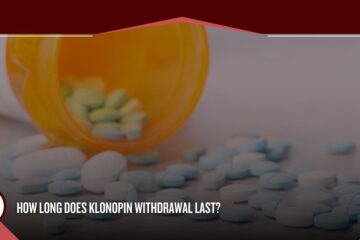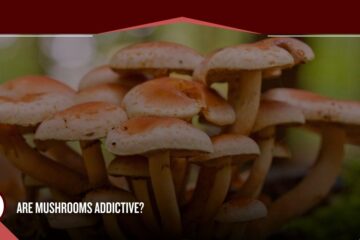Tianeptine, a tricyclic antidepressant, has gained notoriety in recent years due to its misuse and abuse, earning it the colloquial nickname gas station heroin. Its misuse for off-label purposes has become increasingly prevalent. Alamo Behavioral Health delves into the dangers of tianeptine misuse, the accessibility contributing to the gas station heroin phenomenon, and the associated risks. We will also explore the importance of prevention, early intervention, and seeking help at the best San Antonio rehab center for people who have developed an addiction to tianeptine. By understanding the problem and taking action, we can work toward mitigating the harm caused by tianeptine misuse and helping those in need.
Gas Station Heroin—What Is It?
Gas station heroin belongs to a class of drugs known as tricyclic antidepressants and works by modulating the brain’s levels of serotonin. It is officially known as tianeptine. Tianeptine is thought to have mood-regulating effects and may help alleviate depressive symptoms. Tianeptine’s mechanism of action involves influencing the brain’s opioid receptors, similar to traditional opioids. It is important to note that the misuse and abuse of tianeptine can lead to significant risks and dangers, including addiction, as it has opioid-like effects at high doses.
The Rise of Gas Station Heroine Misuse
Tianeptine, originally developed as an antidepressant, has witnessed a concerning rise in misuse and abuse. While tianeptine is approved for the treatment of depression in some countries, it has gained popularity for off-label uses. People seeking mood enhancement, pain relief, or self-medication may turn to tianeptine without medical supervision, unaware of its potential risks.

Accessibility of the Gas Station Heroin
One alarming aspect of tianeptine misuse is its accessibility. Often sold as a dietary supplement or research chemical, you can purchase it in convenience stores, gas stations, and online platforms. This easy availability has contributed to its colloquial nickname, gas station heroin. The illicit marketing of tianeptine under misleading labels or without proper regulation has led to its misuse by people seeking quick, accessible alternatives for pain relief or mood enhancement. For people struggling with gas station heroin addiction or real heroin, seeking professional help becomes essential. By enrolling in heroin detox in Texas, you receive comprehensive care and personalized treatment plans that prioritize your physical and psychological well-being. With the guidance of experienced professionals, you can navigate the challenging detoxification process in a safe and supportive environment, laying the foundation for a successful journey toward lasting recovery.
The Dangers of Gas Station Heroin Misuse
Tianeptine misuse poses significant risks and dangers to people. Let’s take a look at the short-term effects and risks, long-term health consequences, as well as the tolerance, dependence, and addiction potential associated with tianeptine misuse.
Short-term effects and risks
When tianeptine is misused, it can produce various short-term effects and risks. These may include:
- Euphoria: Tianeptine misuse can lead to a sense of intense euphoria and well-being, which may be appealing to individuals seeking a pleasurable high.
- Sedation and drowsiness: Misusing tianeptine can cause drowsiness, sedation, and impair cognitive and motor functions, leading to safety concerns.
- Respiratory depression: High doses of tianeptine can suppress respiratory function, posing a risk of respiratory distress or even respiratory failure.
- Nausea and gastrointestinal issues: Tianeptine misuse may result in nausea, vomiting, and gastrointestinal disturbances, which can have adverse effects on overall health.
Long-term Health Consequences
Continued and prolonged tianeptine misuse can have severe long-term health consequences, including:
- Organ damage: Tianeptine misuse can potentially harm various organs, such as the liver, kidneys, and cardiovascular system.
- Cognitive impairments: Chronic misuse of tianeptine may lead to cognitive deficits, memory problems, and difficulties with attention and concentration.
- Emotional instability: Prolonged tianeptine misuse can disrupt emotional regulation, leading to mood swings, increased irritability, and emotional instability.
- Mental health disorders: Tianeptine misuse can exacerbate or contribute to the development of mental health conditions such as depression, anxiety, or substance use disorders.
Addiction Potential of Gas Station Heroin
One of the significant risks associated with tianeptine misuse is the potential for tolerance, dependence, and addiction. Continued misuse of tianeptine can lead to the development of tolerance, necessitating higher doses to achieve the desired effects. This pattern can then progress to dependence, where individuals become reliant on tianeptine to function normally and may experience withdrawal symptoms when they try to stop using it. Addressing tianeptine addiction often requires professional help, such as drug detox in San Antonio, to safely and effectively manage withdrawal symptoms. Drug detox provides you with medical support and guides you toward recovery and drug-free life.
Recognizing Signs of Gas Station Heroin Addiction
Identifying the signs of addiction to opioids such as tianeptine is crucial for early intervention and providing appropriate support. Look for the following indicators:
- Neglected responsibilities: A decline in performance at work, school, or personal obligations due to preoccupation with tianeptine use.
- Changes in sleep and appetite: Disrupted sleep patterns, insomnia, or significant changes in appetite.
- Secretive behavior: Engaging in secretive or deceptive actions to obtain or hide tianeptine use.
- Mood swings: Frequent and intense shifts in mood, ranging from euphoria to irritability or depression.
- Social isolation: Withdrawing from previously enjoyed activities and isolating oneself from family and friends.
- Relationship problems: Difficulties in maintaining healthy relationships due to conflicts related to tianeptine use or changes in behavior.
- Neglected interests: Abandoning hobbies or activities once enjoyed in favor of tianeptine use.

Helping People with Gas Station Heroin Addiction
Providing effective support and treatment to individuals struggling with tianeptine addiction is crucial for their recovery.
Professional Treatment Options
Seeking professional treatment is often the most effective approach for individuals with tianeptine addiction. Consider the following options:
- Inpatient treatment: Inpatient or residential treatment programs offer 24/7 care in a structured environment, providing intensive support, detoxification, and comprehensive therapies.
- Outpatient treatment: Outpatient programs provide flexibility for individuals to receive treatment while living at home. They typically involve regular counseling sessions, group therapy, and support network participation.
- Dual diagnosis programs: Dual diagnosis programs are designed to address both substance use disorders and co-occurring mental health conditions, providing integrated treatment for individuals with underlying mental health issues.
Behavioral Therapies and Counseling
Behavioral therapies and counseling are essential components of addiction treatment for tianeptine addiction. Effective approaches include:
- Cognitive-behavioral therapy (CBT): CBT helps individuals identify and modify negative thought patterns and behaviors associated with tianeptine addiction, enabling healthier coping mechanisms and relapse prevention skills.
- Motivational interviewing: This approach helps individuals explore and enhance their motivation to change, building self-efficacy and commitment to recovery.
- Individual and group counseling: Individual counseling provides personalized support, while group counseling promotes peer interaction, empathy, and shared experiences.
Individualized Treatment Plans and Continuum of Care
Developing individualized treatment plans is vital to address the unique needs and circumstances of individuals with tianeptine addiction. This includes:
- Comprehensive assessment: Conducting a thorough assessment to identify underlying factors, co-occurring conditions, and individual strengths to tailor treatment plans accordingly.
- Continuum of care: Ensuring a seamless transition from one level of care to another, providing ongoing support, and incorporating relapse prevention strategies to promote sustained recovery.
If you have concerns about the financial side of addiction treatment, contact Alamo Behavioral Health to learn about coverage for rehab services options and get all the information you need. We accept most major insurance providers, such as:

Embark on Journey to a Brighter Future with Alamo Behavioral Health
Taking action against gas station heroin misuse and addiction is not just about individual well-being; it is a collective effort that can lead to a healthier society. By raising awareness, implementing regulatory measures, and providing access to professional help, we can prevent addiction to gas station heroin and its devastating consequences. Educating healthcare professionals, promoting responsible prescribing practices, and conducting public awareness campaigns empower people to make informed choices and seek help promptly. Dealing with the underlying factors contributing to tianeptine misuse and offering comprehensive treatment can transform lives and rebuild communities. Seek professional help to foster a future where the harmful impact of tianeptine misuse is minimized.





